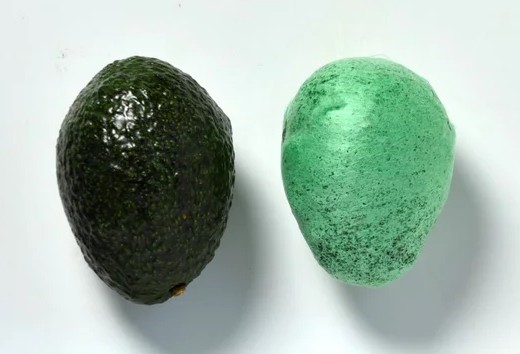
An article appearing in Nature Food authored by researchers at the John A. Paulson School of Engineering and Applied Sciences, Harvard University describes a nontoxic, biodegradable, and antimicrobial food coating that eliminates the need to put produce in plastic. The coating washes off with water when fruits and vegetables treated with it are rinsed. Not only can this coating reduce single-use plastic, but it also can reduce the amount of food produced that ends up going to waste from spoilage. It could prove a gamechanger in dealing with E. coli and Listeria infections and other foodborne illnesses.
An article appearing on June 24, 2022, in Scientific American describes the nontoxic food coating as an important contributor in the fight to reduce plastic pollution. Win Cowger, Environmental Scientist at the Moore Institute for Plastic Pollution Research is quoted stating, “we can see globally that food packaging is the most abundant plastic material in the environment.” And although antimicrobial pullulan fibre (APF) cannot be used with every type of fruit and vegetable (I was having trouble visualizing it with grapes), it can certainly cover a wide range of produce.
The researchers note their reason for using APF which is a polymer fibre. They note that “fibrous materials are an attractive alternative to films for producing antimicrobial food packaging systems because their high surface-to-volume ratios allow for more efficient release of antimicrobial agents.”
The APF is electrospun using a rotary jet spinning system (FRJS) with water as the only solvent. Pullulan fibre occurs naturally. It is an extracellular polysaccharide that is considered safe by the U.S. Food and Drug Administration. And as you can see from the two avocados pictured above, APF provides a uniform protective coating making the avocado on the right look a bit like a Monarch Butterfly chrysalis.
The FRJS applies the APF using a nozzle spray that focuses a stream on the target fruit or vegetable. It can be layered to produce the coating you see in the picture. The researchers added a green dye to the APF to make it visible so that you can tell the difference between coated and uncoated fruits and vegetables. Applying it took 2 to 4 minutes. Rinsing it off took a few seconds.
The antimicrobial agents integrated into the APF solution include tiny amounts of thyme oil, citric acid and nisin, the latter an antibacterial peptide produced by bacteria commonly used in food preservation. None of these antimicrobials altered the characteristics of the APF coating or negatively impacted the preserved avocado.
The researchers looked at changes in colour, firmness and pH levels externally and internally. An avocado changes colour rapidly as it ripens. The changes occur both externally and internally. The APF-coated produce, when compared to uncoated avocados, displayed less colour change and lighter acidity (pH). The researchers believed the small quantity of citric acid in the APF may have had something to do with the changes to pH.
The researchers exposed the test avocados for up to 24 hours to E. coli, Listeria, and Aspergillus fumigatus, the latter a fungal pathogen. They compared the coated with uncoated produce over a week. Results showed that the APF coating reduced spoiled produce from 90 to 50% after a week and retained most of their weight unlike the uncoated produce.
In their conclusions, the researchers stated, “The water-based synthesis process, the edible and washable nature of pullulan, and high-throughput fibre technology combine to present a promising method to package perishable food products to enhance food safety and quality while reducing food waste.”
And then there are these other major added benefits: reducing the number of food poisoning cases currently at 600 million, the 420,000 deaths, and the $17.6 billion in the U.S. alone annually in spoilage.








